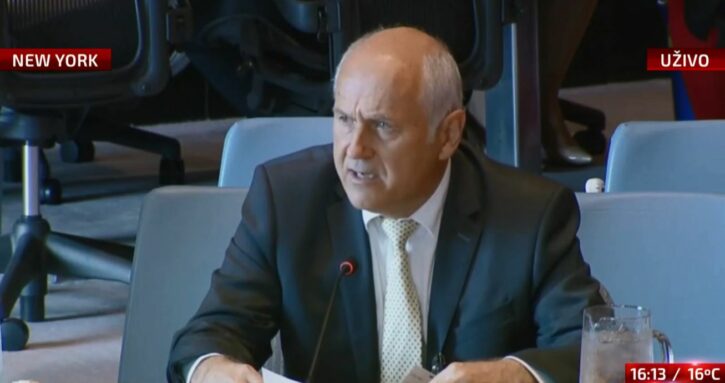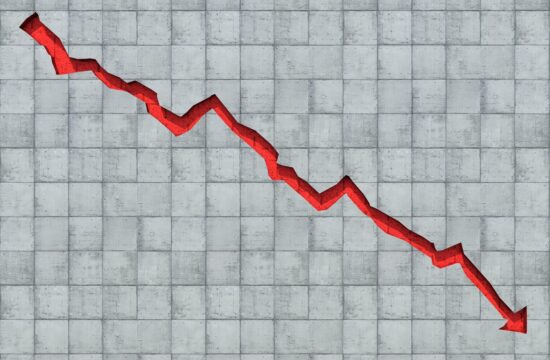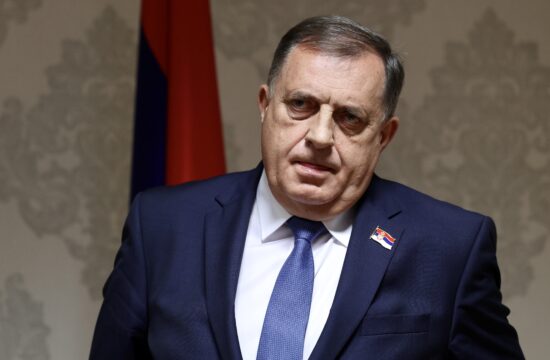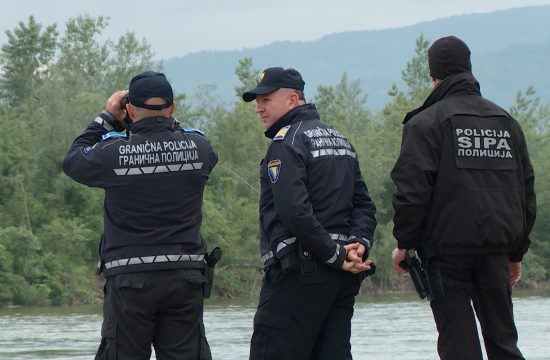
International community's High Representative Valentin Inzko criticised Both the strongest Bosniak Party, the Democratic Action Party (SDA) and Bosnian Serb officials for not contributing to the country's stability and implementing the necessary reforms on its EU and NATO accession path. In his Peace implementation report before the UN Security Council.
The report covered the period from April 16 through October 15, 2019, touching upon the most important events in Bosnia and Herzegovina. Thus, in October, the governments of the Federation and Republika Srpska entities simultaneously adopted a set of reform measures related to the European Union reform agenda. A month earlier, Bosnia's capital, Sarajevo, was the scene of the country’s first-ever Pride Parade, which took place without incident.
“Nonetheless, October 7, 2019, marked one full year since the holding of general elections in Bosnia and Herzegovina in 2018. It is with deep regret that I must report almost no progress on the formation of authorities during the reporting period, given that the new State-level Bosnia and Herzegovina Council of Ministers, the Federation entity government and two of the 10 cantonal governments have yet to be appointed. In contrast, the authorities of the Republika Srpska (entity) were established almost immediately following the elections and remain functional,” Inzko said.
The root of the standstill at the State and Federation levels, is the divide between the main national parties – the dominant Federation-based parties, the Bosniak Party of Democratic Action (SDA) and the Croat Democratic Union of Bosnia and Herzegovina (HDZ BiH), and the dominant Republika Srpska-based party, the Serb Alliance of Independent Social Democrats (SNSD) – in their competing visions for the country and their interpretation of the Constitution he noted.
He argues that the parties’ interpretations are often contrary to the terms that are part of civilian aspects of the Dayton Peace Agreement which ended the 1992-1995 war in Bosnia and represents the country's Constitution, the implementation of which is his responsibility.
“The parties remain at odds over fundamental aspects of the Constitution of Bosnia and Herzegovina, with some parties based in the Republika Srpska challenging the very role and authority of the State thereunder, as well as previously agreed policies and legal commitments towards the North Atlantic Treaty Organization (NATO),” Inzko pointed out.
In this regard, Inzko mentioned the delivery in May of the opinion of the European Commission on Bosnia's application for EU membership, in which it set out 14 key priorities for the authorities to meet as part of the process towards opening negotiations on accession, should have motivated the political leaders to overcome their differences and start moving on key reforms.
“Instead, an agreement made in August on principles for the formation of authorities signed by the leaders of the three aforementioned political parties expired in September without result, leading to even greater upheaval and threats, particularly from the SNSD, to withdraw from existing agreements and roll back previous reforms, which, if they were carried out, would represent clear activity aimed at undermining the sovereignty of the State and its key institutions vested with exercising the constitutional responsibilities of Bosnia and Herzegovina,” the High Representative concluded
In September, Inzko said, SNSD leader and member of Bosnia's Presidency, Milorad Dodik, threatened to withdraw the RS from the agreements on legal transfers of competencies from the entities to the state signed by the two entities prior to the establishment of the single, armed forces of Bosnia and Herzegovina, the single High Judicial and Prosecutorial Council of Bosnia and Herzegovina and the Indirect Taxation Authority of Bosnia and Herzegovina, further claiming that other institutions, including the Court of Bosnia and Herzegovina, the Office of the Prosecutor and the State Investigation and Protection Agency of Bosnia and Herzegovina, were established in violation of the Constitution of Bosnia and Herzegovina, without the consent of the Republika Srpska, and should therefore be considered only as interim and not permanent institutions.
“Mr Dodik warned that all laws and decisions enacted “under pressure of the High Representative”, even those approved in the Parliament of Bosnia and Herzegovina, could be declared to be invalid, and he has announced a session of the National Assembly of the Republika Srpska for early November to consider such proposals,” he said. “Moreover, in September, SDA adopted its party programme declaration, establishing – not for the first time – its long-term goal of the adoption of a constitution that would define Bosnia and Herzegovina as the “Republic of Bosnia and Herzegovina”, with three levels of authority: State, regional and local. The SDA declaration was unhelpful, given that it generated divisive pronouncements in Bosnia and Herzegovina.”
Inzko continued, saying following the issuance of the SDA declaration, SNSD leader Dodik and other representatives of the RS met with the President of Serbia, Aleksandar Vucic, in Belgrade, where Mr Dodik reportedly warned of conflict and solicited Serbia’s intervention in the country.
The High Representative praised the Serbian President, saying he is to be commended for his calming statements, in which he urged the RS leaders to show restraint and support peace and stability and reiterated the support of Serbia for Bosnia as a single State consisting of “two entities – the Republika Srpska and the Federation – with all their authorities and the agreement of three constituent peoples, Serbs, Croats and Bosniaks”.
“The current political situation again reveals the long-standing politically driven dysfunctionality at the State level, which is to a large extent a consequence of the aforementioned diverging viewpoints and policies. Those issues must be properly addressed without further delay,” he pointed out.
In conclusion, he reiterated that entities have no right to secede from the country and that the Dayton Agreement guarantees the sovereignty and territorial integrity of Bosnia and provides that it shall consist of two entities: the Republika Srpska and the Federation.
“It appears that nearly 25 years since the signing of the General Framework Agreement, the political elite in Bosnia and Herzegovina have still not abandoned their long-term goals, as witnessed during wartime. For the Serb parties, this means achieving the independence of the Republika Srpska; for the Croat parties, this means a territorial-administrative reorganization to establish a third, Croat, entity; for some Bosniak parties, this means a Republic of Bosnia and Herzegovina with no entities,” Inzko added.
The entire text of his remarks can be read here.




